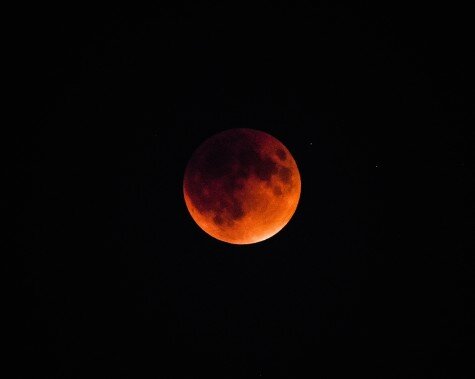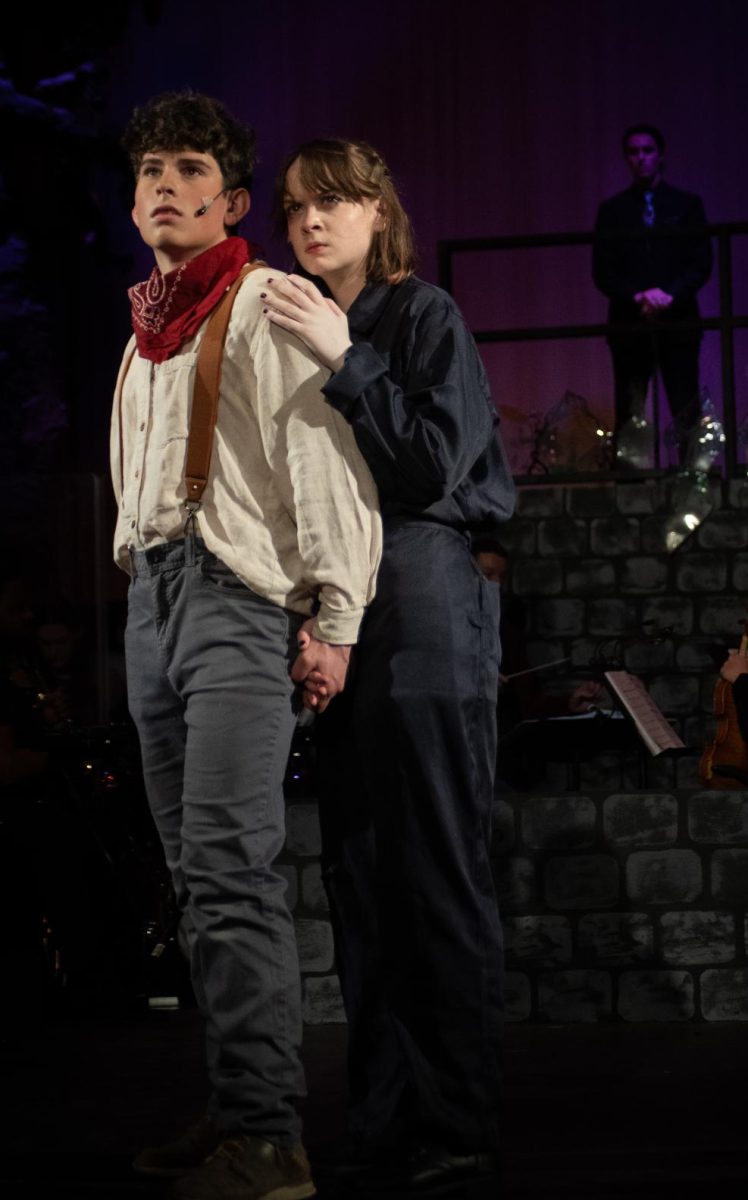Supermoon and total lunar eclipse fall on same night
Jaya Flanary, Editor-in-Chief
Originally published October 1, 2015
Aiden Sheckler
A supermoon and total lunar eclipse took place Sunday, Sept. 27, giving the moon a dark red glow. This event will not occur for another 18 years.
On Sunday night, a supermoon coincided with a total lunar eclipse, creating a phenomenon that has not been seen since 1982 and will not be seen again until 2033. The eclipse could be viewed from North and South America, West Africa and Western Europe.
A supermoon occurs when a the moon is full and at it’s closest point to Earth in it’s orbit. A total lunar eclipse occurs when the sun, Earth and the moon align.
Eric Muhs, astronomer teacher, was looking forward to this occurrence. “I like to joke that it’s a good time to sacrifice goats, or chickens, or virgins. You know, whatever you got laying around the house,” Muhs said.
According to Muhs, in a total lunar eclipse, the Earth casts a shadow on the moon while the sun’s light wraps around the Earth. The light then enters Earth’s atmosphere, where the colors are separated. Blue light from the sun stays in Earth’s atmosphere while red light passes through. Due to this process, the moon appears dark red, or what is known as blood red.
Aiden Sheckler
The eclipse could be viewed from North and South America, West Africa and Western Europe.
Ancient people were able to record events such as eclipses and predict future ones based on these recordings. “The thing that separates humans from all other animals is we really think about the future a lot and we try to predict it and make it better,” Muhs said. “So in some ways it [the phenomenon] represents a very early triumph of that.”
Today, astronomers can predict eclipses far in advance. Muhs believes unusual astronomical events are important for people to witness not only because they’re interesting and fun, but also because of our ancestors.
“It’s quite extraordinary, you know, if you’re a human and you’re part of civilization. I think we all ought to have some appreciation for our ancestors who were able to do that,” Muhs said.
Muhs went to Rooftop Brewing Company with his friend, a Roosevelt science teacher, to see the eclipse. They brought telescopes and drank Stargazer IPA’s. Unfortunately, during the eclipse, the moon was quite dark, so their telescope views were poorer than anticipated.
Predictions of future eclipse dates and other astronomical events can be found on the NASA website.

























